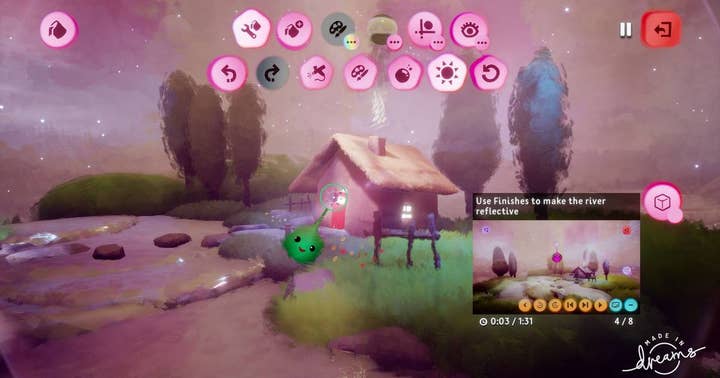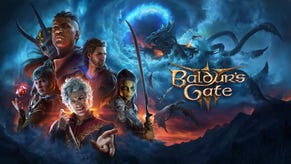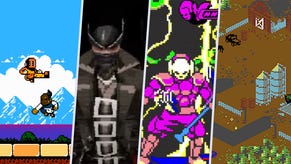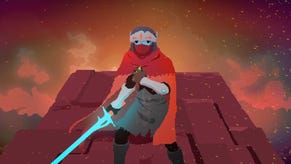How to get a job in game design
The GamesIndustry.biz Academy looks into how to get a job as a game designer
Finding a job in the games industry is no easy task. Our guides can help you to find the right path to the games industry job of your dreams. You can read our other in-depth guides on how to get a job in the games industry on this page, covering various areas of expertise.
Game design is a term that's often used but widely misunderstood. Many people dream about becoming a game designer, but what does that entail exactly? What does a game designer actually do?
Game design is a blend of analytical thinking and creative spirit. As a game designer, you'll be asked not only to come up with the overall setting and feel of a game, but also its rules and mechanics. Being a game designer means having a vision, and then using technical skills to bring that vision to life.
One of the core traits of a game designer is the ability to understand how things function in a game and justify why they work that way. Everything from the gameplay loop to specific mechanics, from challenges to level design and story flow, needs to have a reason to be -- figuring out that reason is the game designer's job.
Depending on the studio, the role of the game designer can encompass a wide variety of tasks. In smaller companies, the game designer can also be the creative director or the lead programmer or writer, while in bigger studios those roles would be held by different people working hand-in-hand. There are also many specialties under the game design label -- you can branch into level design, UI design or systems design for instance.
We'll explore some of these specialties elsewhere in the GamesIndustry.biz Academy, but you have to walk before you can run -- let's start by looking at how to become a game designer.
What education do I need to be a game designer?
- Higher education is the classic path to game design
There's a wide array of education options for anyone wishing to become a game designer, but Joy Dey, senior game designer at Creative Assembly, followed a more traditional path.
"I started taking programming lessons in high school when I was 15," she says. "Following that, I studied computer science in university and while in my final year I discovered a game design course at another university. I took an additional year studying game design and my career began shortly afterwards."
State of Play game designer Daisy Fernandez has an MA in Game Design and Development from the National Film and Television School. She chose formal training due to feeling overwhelmed by the sheer volume of information available online.
"I have dyslexia and often need technical things explained to me in several ways," she says. "As a result, having tuition felt like the most sensible way to go about learning how to make games... However, it would be remiss of me not to acknowledge my privilege: higher education is expensive and there's no guarantee of a job at the end of it."
- You don't need to study game design specifically
Having a solid technical background is important for a game designer, but that doesn't need to come through formal game design training specifically.
"It is important to have practical skills, not just formal education"
Joy Dey, Creative Assembly
"Having a degree in game design gives a good foundation and can provide a foot in the door when it comes to applying for roles," Dey says. "It is important, however, to have practical skills, not just formal education. You will find free engines and resources online to create your own games, or you can do more technical university courses such as computer science or engineering."
Ollie Hind, lead designer at Jagex, has a computer science degree and decided to go this route for two reasons, the first being that technical skills are "a massive bonus" for a designer.
"And secondly, the games industry is tough to get into," he adds. "Having other skills to fall back on, at least in the short term, is always good."
- Learn about design principles outside of games
Independent game designer Malath Abbas studied Computer Games Development at John Moores University, and followed it up with a Masters in 3D animation. Abbas doesn't believe you need to study game design to become a game designer, as diversity of experience ultimately means more diverse ideas.
"Traditional design courses will help you open up more job opportunities," he says. "Lots of people are doing game design courses and I'm not sure that's healthy for the industry. It's good to stand out and have a mixed background."
Ross Gowing, a game director at Codemasters, is an example of how adjacent degrees can do a lot to help you understand game design.
"I don't have any formal game design training, just a degree in graphic design which taught me a lot about the principles of effective visual communication," he says. "I'm not sure that formal training [in game design] is crucial by any means."
- Learn by doing
Many game designers we talked to didn't have formal training due to a lack of time or money, or simply because specialist courses didn't exist when they joined the industry. Interior Night founder Caroline Marchal first studied communications and politics, and then what was called 'multimedia' -- it was 20 years ago, she points out.
"I had a vague plan of maybe becoming a scriptwriter for games, but I didn't know what game design was until I started working at Quantic Dream," she says. "There wasn't game design training in the late '90s or early '00s, so it wasn't a choice. I just jumped into it. I didn't even know what game design really meant.
"Given my experience, I don't believe formal training is a must. You can learn by reading a few books and, first and foremost, by making a game and learning from experience. That said, I do think formal training can be useful and work as an accelerator. In the right environment, you learn quicker and it helps to avoid mistakes."
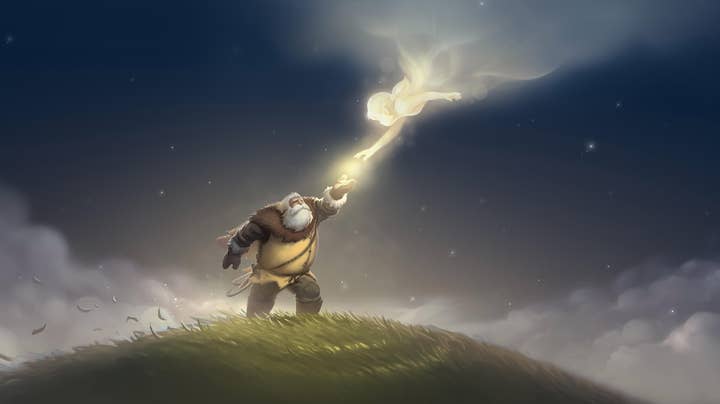
Jordi Ministral and Alexis Corominas, co-founders of Arise developer Piccolo, also learned game design by doing, and drawing inspiration from a wide range of sources.
a"We were very autodidactic," Ministral says. "We learned game design by analysing and playing video games, board games, designing advertising experiences, reading books, watching films."
What do I need to get noticed as a game designer?
- Build a portfolio
If you want to get noticed in the industry, you need to create your own opportunities. If our guides to the best game engines prove one thing, it's that it's never been easier to find the right (free) tools to get started. Only practice makes perfect.
"No amount of education will ever replace the experience you gain when making your own games," says Dey. "Be it via game jams or your own projects, at home or with people on the internet, it is important to be constantly practicing your craft and honing your development skills."
It's best to practice in different genres as well. If you've tried platformers, why not try a strategy game or a shooter? Dey points out that creating board games or card games can also provide valuable lessons and insights into good design.
Abbas adds: "I would recommend solo indie development and game jams to build a portfolio over any education -- or even better, to supplement an educational path that makes sense to your context. Design can be demonstrated practically, and less so through any formal qualification."
- Consider a role in QA
In addition to working on your own games, first-hand experience at a studio will be valuable in landing a job in game design. In that respect, QA is one of the best ways to take your first step.
"Having worked on your own game with friends is a great experience, but for me the main thing you need to do is to get a job in a development studio and to go through a full cycle of concept/pre-production/production/release," Marchal says. "Once you've done that, you have valuable experience under your belt."
Codemasters' Gowing started his career as a QA tester at Blitz Games Studios, where his commitment to the work impressed the company -- he was soon asked to apply for a junior design role. Gowing points out that entry level game designers aren't really expected to have any experience in the role, but an understanding of the development process and how a studio operates is useful.
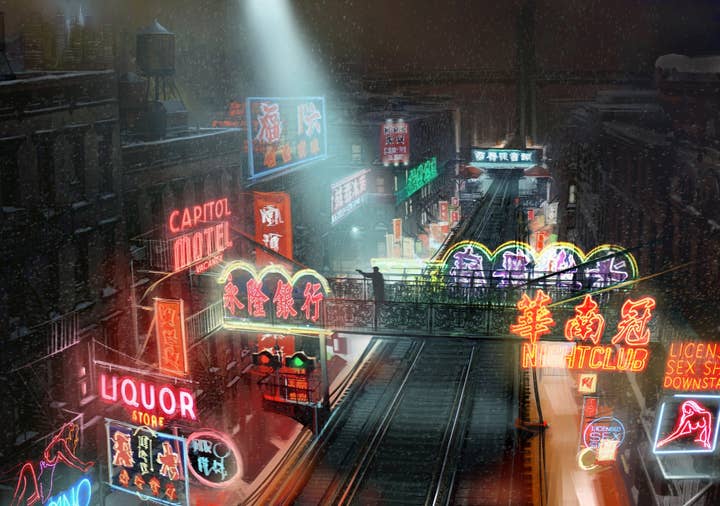
"As a path that served me well personally, and a path that more than half my team have been through too, I'd thoroughly recommend taking a job as a QA tester and going from there," he says. "It gives you a chance to learn a lot about the games industry and how a studio is run, as well as giving you a chance to get yourself noticed."
- Look into the modding scene
Modding is another established way to get experience. Many games have mods these days, so it shouldn't be too hard to join a community on Reddit, Discord, Steam, or whichever platform you prefer.
The list of successful games that started life as mods is long: Dear Esther was a mod for Valve's Source engine, Dota was a mod for Warcraft III, DayZ has its roots in Arma 2, and PUBG can be traced to Arma 3. In addition, some studios look to the modding scene when recruiting: Studio Wildcard has worked closely with modders on Ark: Survival Evolved, while Media Molecule has employed many creatives from its communities.
"Being a modder of a game that has the tools available is a great place to begin to stretch your game design muscles," says Creative Assembly's Dey. "And it provides a public community forum that will publicise your work if people like it enough."
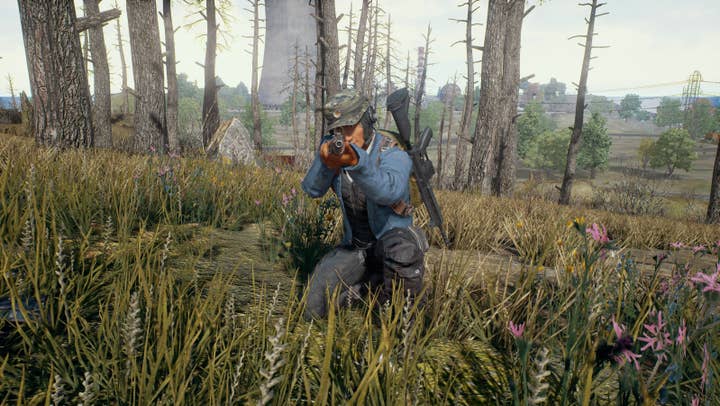
What qualities and skills do I need to work in game design?
- You need to be analytical, logical and creative all at once
Game design requires a mix of technical, analytical and creative skills. Marchal started at Quantic Dream not really knowing what a game designer should do -- instead, she tried to understand how all the parts of a game came together, and that sums the role up nicely.
"Designers are very analytical: they can explain why this game sucks and why this one is awesome in a very articulate and smart way," she says. "But there is a difference between critical and creative thinking. To be a designer, you need both minds. You have to look past the data, consider the global experience you're trying to create and make decisions. Once you have enough experience and know your audience well, you can start trusting your gut."
Dey adds: "You should have the ability to really think logically, making sure all your systems and interactions make sense. You should analyse everything, as you need to breakdown and study the underlying systems behind functions."
- Pair hard skills with the right attitude
In terms of hard skills, maths and coding will be a great benefit to any game designer, but it's not a deal breaker if you don't have them.
"Basic maths comes in very handy when you need to plan an XP-Level structure for a game, or want to get started making simple economies," Gowing says. "At a higher education level, I'd recommend [courses] that allow students to specialise in a discipline -- design, art or code -- and work in teams with other students following other disciplines, rather than [courses] that try to teach a 'jack-of-all-trades' approach."
"There is a difference between critical and creative thinking. To be a designer, you need both minds"
Caroline Marchal, Interior Night
- You need to be a good communicator
Communication is a key element of being a game designer. Creating a video game is a collective effort, so it's not enough to just figure out great mechanics -- you need to explain your thinking to your team.
"You'll hear this a lot, but you do need to have great communication skills," Hind says. "Whether it's pitching ideas, explaining your logic, giving feedback or just working as part of a team, communication is imperative -- verbal and written. You need to be a problem solver, as finding solutions is a core part of your everyday job."
Dey adds: "Game design is very collaborative. It is never just a single person making all the decisions. You need to work with people in your field or in other fields very closely, and you must be able to communicate clearly the work you have done. Humility is an underrated trait, yet it's essential to take criticism and learn from it, accepting that you could be wrong and take on other views and ideas."
- You need to be empathetic
Listening to the views of others requires empathy, which is also essential for a game designer to understand their players and what they want. As Piccolo's Corominas explains, a common problem in game design is assuming that all people think and react the same way.
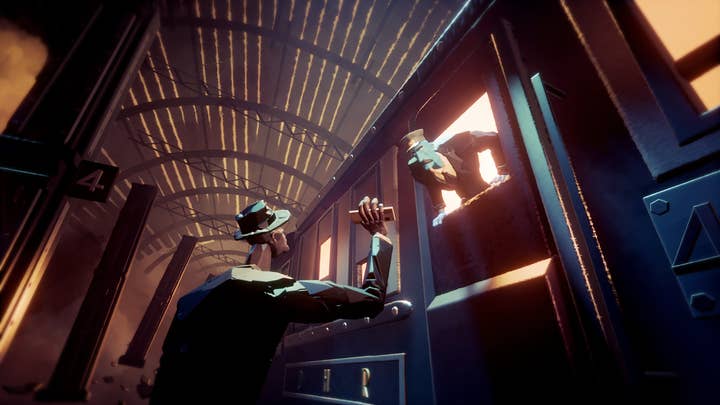
"It's very hard to reach solutions that work for everyone because not all people enjoy or engage with the same elements," he says. "At some point you have to be aware that no matter what you do, your design will be flawed and all you can do is minimise the potential problems.
"Game design is something that happens by iterating a lot and testing with a lot of users. Being able to distance yourself from your own design and determine a precise diagnostic is very tricky -- it's very hard to escape your own bias."
What are the common misconceptions about game design?
The first misconception is that game designers just play games all day. That assumption is common to many jobs in the industry -- games PR and journalism, for instance.
"I'm not sure if anyone who knows anything about games really believes that, but just in case you didn't realise: making games is hard work," Hind says. "It's complex in so many different ways, from production to tech to art to design. It can be hard at times, so you really need that internal passion to see you through."
Speaking of hard work, Marchal clarifies that being a game designer involves much more than most people think. The job's responsibilities go beyond writing a game design document and tweaking new builds.
"The game designer is pivotal at every stage of the development process," she says. "You have to be hands-on and connect with every department, however big or small the task they're in charge of may be."
"I'd hate to be the guy to crush people's dreams, but you don't get to sit on sofas playing games all day"
Ross Gowing, Codemasters
Game design shouldn't be confused with game direction, Abbas says, although it often is by aspiring designers. When first starting in the industry, it's important to have ambition and share your ideas, but don't try to run before you learn how to walk.
"You're not a game director," he says. "There are examples of amazingly talented people climbing to the top and being able to lead teams. However, this is the few, and the majority are nameless but equally important in the industry. Again, collaboration is important, and I've seen far too many young people with big egos think they can be a game director when they don't have fundamental skills."
Gowing sums it up: "I'd hate to be the guy to crush people's dreams, but you don't get to sit on sofas playing games all day, you don't decide the art style or draw the characters, and you probably won't be directing 500 people to make your own version of Grand Theft Auto, with you cast as the central character."
Advice for new and aspiring game designers
- Keep making games and educating yourself
The most common advice for any aspiring game designer is reassuringly simple: practice your craft.
"My advice would be to start off by downloading Unity for free and trying out some of the beginner's tutorials on YouTube," Fernandez says. "Ultimately, the best way to learn design is by smashing out some short and simple games and seeing what you like and what your limitations are."
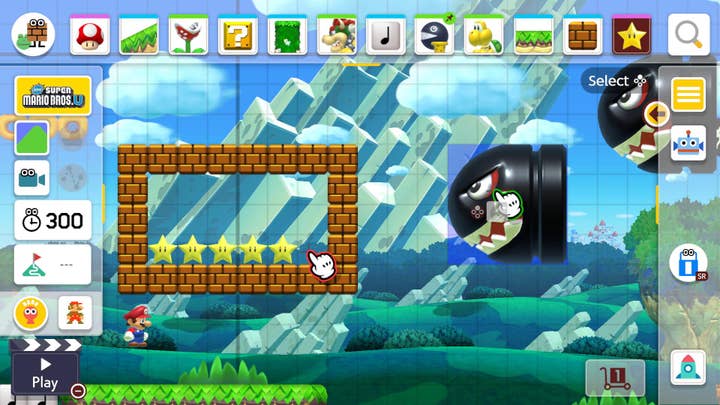
Dey points out that you can start with something as simple as Mario Maker. There's no wrong way of making a game, and there's no reason to limit yourself when it comes to creation, whether you're working for a studio or experimenting on your own. While you may think one of your ideas is stupid, someone on your team may see value that you don't recognise.
"I sometimes felt that my ideas wouldn't hold up to scrutiny from more experienced people," Gowing adds. "But I learned that sharing an idea often allows other people to run with it and build on and improve it."
- Be an active player
Game design is about playing, too, but remember to be an active player. In fact, you should try to learn something from every game you play.
"Whether it's good or bad, fun or not, ask yourself why you feel like that and what the game has done to get you there," Gowing says. "Take a careful look at a game you've played recently and identify a gameplay mechanic you'd alter or add to enhance the experience. Then task yourself with writing a one-page design for it that would give another person a clear picture of your intentions to the point where they'd be able to start making it."
You can apply this active, analytical way of playing games to everyday situations, too. Corominas recommends an exercise where you "try to turn any situation into a game."
"Imagine you're in the airport, in the queue to board your plane," he says. "What kind of game can be created in that situation? Try to create a set of rules and visualise the outcome of those rules. Ponder if it is fun or engaging and how it could be improved. It may sound stupid, but it's a great way to kill time without constantly checking your phone, and you're honing your design skills."
- Seek feedback, and ask plenty of questions
While it can be daunting to share your work, you shouldn't keep them to yourself. You can publish a game to a free platform like Itch.io, or just share your ideas with people you know.
"Create your own games -- even if it's a board game done with paper and pen -- with a set of instructions and have your friends and family play it," Ministral says. "You shouldn't explain anything to them. Just watch and listen. By observing their reactions and analysing their process-making, you will learn a lot more than in the time you spent creating the game."
Whether you're working for yourself or as part of a studio, you shouldn't just be open to criticism and feedback, but actively seek it.
"You need to analyse everything you play, be it a board game, rock paper scissors or a video game"
Jordi Ministral, Piccolo
"When first getting the opportunity to work as a designer at Creative Assembly, I was very open to feedback and tried to absorb and learn as much as possible from the other designers," Dey says. "One thing I could have done differently is to ask more questions. I think asking more questions and diving more into the minds of the designers would have given me a greater breadth of understanding and, in particular, confidence in my own skills as a designer.
"Feedback will help you. Put your work online, take the criticism that comes from it, and use it to learn and grow in both your development skills and your personality."
- Get life experience
Believe it or not, there's also a life outside of video games. Go and live it -- you'll be a better designer for doing so.
"Nurture yourself with a lot of reading, going to museums, taking trips, and observing people to understand how the mind works," Marchal says.
Hind describes this as "life experience," which can include "seeing different cultures, trying crazy activities, accumulating emotional references which you can then tap into for your art."
Try to remember that design is a field that applies to a huge number of areas -- seeing how other industries tackle design problems can help you to better understand your own role.
"Look into other design practice and mediums outside games," Abbas says. "What can you bring from interior design to games? What about fashion? We live in a diverse global society -- what unique inspiration can you find to help you solve your problem and come up with good experiences?"
You can find all our in-depth guides on finding a job in the games industry on this page. Want to talk about your job and be featured in our guides? You can get in touch at academy@gamesindustry.biz
